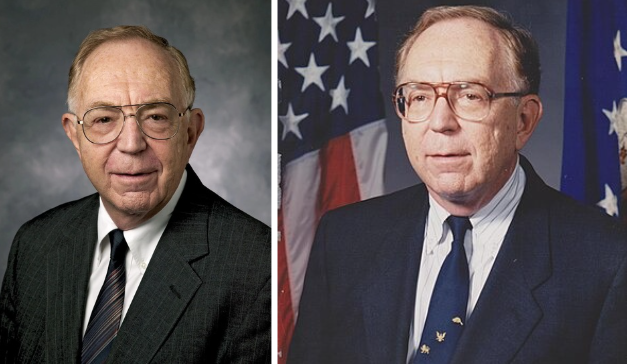Exploring Edward Feigenbaum’s Role in Modern Computer Science

Edward Feigenbaum is often celebrated as the “Father of Expert Systems” for his groundbreaking work in artificial intelligence and knowledge-based systems. His contributions transformed how machines process knowledge and laid the foundation for many modern AI applications.
Quick Bio Table of Edward Feigenbaum
| Attribute | Details |
|---|---|
| Full Name | Edward Albert Feigenbaum |
| Born | January 20, 1936 |
| Place of Birth | Weehawken, New Jersey, USA |
| Nationality | American |
| Education | Carnegie Institute of Technology (B.S., 1956), Carnegie Mellon University (Ph.D., 1960) |
| Field | Computer Science, Artificial Intelligence |
| Known For | Expert Systems, Knowledge Engineering |
| Major Contribution | DENDRAL and MYCIN AI Systems |
| Academic Career | Professor at Stanford University |
| Awards | Turing Award (1994), Computer Pioneer Award |
| Nickname | “Father of Expert Systems” |
| Influence | Artificial Intelligence, Knowledge-Based Systems, Decision Support Tools |
Early Life and Education
Edward Feigenbaum was born in Weehawken, New Jersey in 1936. From an early age, he showed a strong interest in mathematics, problem-solving, and logic. His academic journey began at the Carnegie Institute of Technology (now Carnegie Mellon University), where he completed his undergraduate degree in electrical engineering. He pursued his Ph.D. under the mentorship of Herbert A. Simon, a Nobel laureate, who deeply influenced his thinking about artificial intelligence and computational models of decision-making.
Academic Career at Stanford University

After completing his doctoral studies, Edward Feigenbaum joined Stanford University as a faculty member. At Stanford, he played a pivotal role in developing one of the world’s most recognized artificial intelligence programs. His teaching not only focused on the technical aspects of AI but also emphasized the real-world applications of knowledge systems. Many of his students went on to become leading figures in computer science and artificial intelligence research.
The Father of Expert Systems

Feigenbaum’s most significant title, “Father of Expert Systems,” comes from his pioneering work in knowledge-based systems. Unlike conventional computing approaches that relied on numerical calculations, expert systems mimic human reasoning and decision-making. By embedding the knowledge of specialists into computer systems, Feigenbaum enabled machines to perform tasks that previously required human expertise.
The DENDRAL Project
One of Feigenbaum’s first major projects was DENDRAL, developed in the 1960s at Stanford. This system was designed to assist chemists in identifying molecular structures. Instead of manually analyzing complex data, chemists could rely on DENDRAL’s reasoning ability to make predictions. This was a revolutionary leap, as it proved that computers could handle tasks involving specialist-level knowledge. DENDRAL became a benchmark for later artificial intelligence systems.
The MYCIN System
Another milestone achievement was MYCIN, a medical expert system designed in the 1970s. MYCIN focused on diagnosing bacterial infections and recommending treatments. Although it was never widely implemented in hospitals due to ethical and legal concerns, MYCIN demonstrated the potential of expert systems in healthcare. Its rule-based design inspired countless decision-support systems in medicine and beyond, making Edward Feigenbaum’s work crucial to modern health technology.
Contributions to Artificial Intelligence
Beyond DENDRAL and MYCIN, Feigenbaum contributed to the theoretical and practical growth of artificial intelligence (AI). His central idea was that knowledge is power. Unlike purely algorithmic approaches, he argued that embedding domain-specific knowledge into AI systems was the key to intelligent performance. This perspective influenced not just AI research but also industries like medicine, engineering, and finance.
Knowledge Engineering and Its Importance
Knowledge engineering, a term popularized by Feigenbaum, refers to the process of capturing and structuring expert knowledge so that machines can use it effectively. His work highlighted that the real challenge of AI lies not just in computation but in organizing and applying human expertise. This principle is still highly relevant today, as knowledge representation remains a critical component of AI development.
Awards and Recognition
Edward Feigenbaum’s contributions earned him numerous prestigious awards. The most notable is the Turing Award in 1994, often referred to as the “Nobel Prize of Computing.” This recognition honored his pioneering work in expert systems and artificial intelligence. Additionally, he received the Computer Pioneer Award from the IEEE Computer Society, solidifying his place as a foundational figure in the history of computer science.
Influence on Artificial Intelligence Today
Modern AI systems, from intelligent assistants to complex diagnostic tools, owe a great deal to Feigenbaum’s early concepts. The principles he established—knowledge-based reasoning, expert systems, and decision support—are embedded in many of today’s AI-driven applications. Whether in healthcare, engineering, finance, or data analysis, his influence continues to shape the technologies we use daily.
Legacy in Computer Science
The legacy of Edward Feigenbaum extends beyond his research. As a professor, he mentored future innovators in AI. As a researcher, he changed how the world perceives machine intelligence. His belief that computers could not only calculate but also “think” using expert knowledge redefined the scope of computer science. His work bridged the gap between theory and real-world applications, a legacy that continues to inspire scientists and engineers worldwide.
Publications and Writings
Feigenbaum also contributed extensively through academic publications and books. His writings often explored the relationship between human knowledge and artificial reasoning. Works such as The Handbook of Artificial Intelligence and his research papers provided valuable frameworks for future AI development. His publications remain a reference point for both students and researchers studying expert systems.
Personal Life and Values
While best known for his academic and professional achievements, Feigenbaum was also a person deeply committed to education and collaboration. He valued interdisciplinary research, often working with experts in medicine, chemistry, and engineering to advance AI applications. His personal philosophy emphasized that knowledge sharing is key to technological progress.
Continuing Relevance of Feigenbaum’s Work
Today, as artificial intelligence evolves with machine learning, deep learning, and natural language processing, the foundational ideas of Edward Feigenbaum remain relevant. His principle that knowledge representation and reasoning are essential for intelligent systems continues to guide modern AI research. Even as AI systems grow more data-driven, the integration of structured expert knowledge is still central to creating reliable and interpretable AI tools.
Conclusion
Edward Feigenbaum stands as a towering figure in the history of computer science and artificial intelligence. His pioneering work in expert systems not only advanced AI research but also demonstrated the real-world potential of knowledge-based computing. From DENDRAL to MYCIN, his legacy lives on in modern decision-support systems, healthcare innovations, and AI-driven technologies. More than a scientist, he was a visionary who helped shape the digital era and paved the way for today’s intelligent machines.
FAQs
Who is Edward Feigenbaum?
Edward Feigenbaum is a computer scientist known as the “Father of Expert Systems” for his pioneering work in artificial intelligence.
What is Edward Feigenbaum famous for?
He is most famous for developing DENDRAL and MYCIN, two early expert systems.
What awards did Edward Feigenbaum win?
He won the 1994 Turing Award and the IEEE Computer Pioneer Award.
Why is Edward Feigenbaum important to AI?
He emphasized the role of knowledge in artificial intelligence and created systems that mimicked human expertise.
Where did Edward Feigenbaum teach?
He was a professor of computer science at Stanford University.
For More Updates Visit: Fortune Magazine




